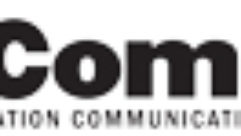
Associations Focus: AV Continuing Education
Jun 1, 2005 12:00 PM
NYCCT offers first hands-on InfoComm “Essentials” course.
The New York City College of Technology (NYCCT) Division of Continuing Education, in collaboration with the college’s Entertainment Technology department, celebrated the successful pilot run of “AV 101: Essentials of the AV Industry Plus,” a hands-on class based on the online course developed by the ICIA’s InfoComm Academy.
Left to right: James Reynolds, student; Ed Mana, Technology on Demand; Vince Basirico, Real Time Services; and students Paul Ondreicka, Cosmo Romeo, Calvert Bowen, Kenneth James, and Manuel Molina.
The 15-hour class ran February through March 2005 and featured six lab sessions conducted by Vince Basirico, CTS-I, and J. Pepe, CTS-D, of Real Time Services, with special assistance from RTS technician Anthony Magarelli, CTS. Guest lecturers RTS partner John Vezzi, CTS-D, and Ed Mana, CAIP (Crestron Authorized Independent Programmer), president of Technology On Demand, contributed to the System Integration and Control System sessions.
The course was the brainchild of Peggy O’Keefe, program development specialist for NYCCT’s Division of Continuing Education. A former corporate media manager with 20 years of experience, O’Keefe knew firsthand the challenge of providing professional development opportunities for media professionals.
Brainstorming sessions with NYCCT faculty members David Smith and John Huntington led O’Keefe to the conclusion that continuing education programs targeted to the New York AV community could benefit both the college and the industry. She was particularly impressed with the Entertainment Technology department’s degree program preparing students for technical careers in the entertainment industry.
To get a better sense of the AV industry’s training needs, O’Keefe spoke to industry leaders such as Josh Weisberg of Scharff Weisberg and Dennis Murphy of SPL Integrated Solutions. She also conducted focus group sessions attended by a cross section of industry professionals, such as Mario Porto of World Audio Visual Enterprises, and internal corporate AV managers from the medical, finance, law, and education sectors. Area AV companies expressed interest in having access to training in New York City because they couldn’t afford to send their employees away for it. This encouraged O’Keefe to seek out ICIA as a resource for audiovisual education.
O’Keefe explains her reason for adopting the InfoComm program: “Reinventing the wheel never makes sense. Professor Huntington was using the ‘AV Essentials’ curriculum in his Entertainment Video Systems class. ICIA also came up during focus group sessions we did — people mentioned that the online ‘Essentials’ course was what they relied on for employee training, but that they wished they could get their people hands-on training.”
O’Keefe contacted an ICIA representative, who recommended several ICIA members in New York to serve as instructors, and recruited Real Time Services to develop and teach the pilot course. Basirico and Pepe boiled down the 260 lessons in the web-based “Essentials of the AV Industry” into six laboratory sections. The new “AV 101: Essentials of the AV Industry Plus” served as a hands-on lab while students worked their way through ICIA’s online course independently.
“AV 101” includes labs centered on demonstrations, examples, and hands-on use of AV equipment. Real Time Services purpose-built two audio and video test racks for use in the course. Students were encouraged to remain after class to ask additional questions and further familiarize themselves with the equipment.

The first-time class attracted an eclectic group of continuing education students, including AV support staff, an event planner, alumni from NYCCT’s degree programs, and nontraditional students such as retired firefighters and policeman.
O’Keefe says, “We sent targeted mailings to the alumni from the college’s School of Technology. … The assumption was that they had been educated in disciplines with skills that transferred nicely into the AV world.” O’Keefe also tried to recruit women for the class, including women enrolled in NYCCT’s basic electronics courses, because several employers in her focus group felt women were underrepresented in the AV industry.
According to O’Keefe, the inaugural course was a success for all involved and she received positive feedback from the students. She hopes to use “AV 101” as a recruiting and training tool for NYCCT and area AV businesses.
“Our goal is to fill a niche and make City Tech the place to go in New York City for AV training,” says O’Keefe. She adds that target audiences would include both people right out of school and current industry professionals who want certification credentials.
Basirico views courses like “AV 101: Essentials” as providing a very real benefit for corporate AV staff, as well as for Real Time Services and other New York professional AV integration companies.
“Knowledge is power,” Basirico said, “Corporate AV staff and entry-level AV integration personnel can benefit greatly from the combination of the self-paced online ‘Essentials’ course and the hands-on labs offered by NYCCT. This is a very cost-effective way for AV employers to get their people trained.”
The next cycle of “AV 101” courses is slated to begin in June 2005 and will include “AV 101: Essentials of the AV Industry Plus” and “QuickStart Plus,” an introduction to the AV industry and its career opportunities based on ICIA’s online course, “QuickStart to the AV Industry.”
For more information about NYCCT and its programs, contact Peggy O’Keefe at [email protected]. For more information about ICIA’s online courses, contact an ICIA training counselor at (800) 659-7469 or (703) 273-7200.
For more information about ICIA and InfoComm, visit www.infocomm.org.








